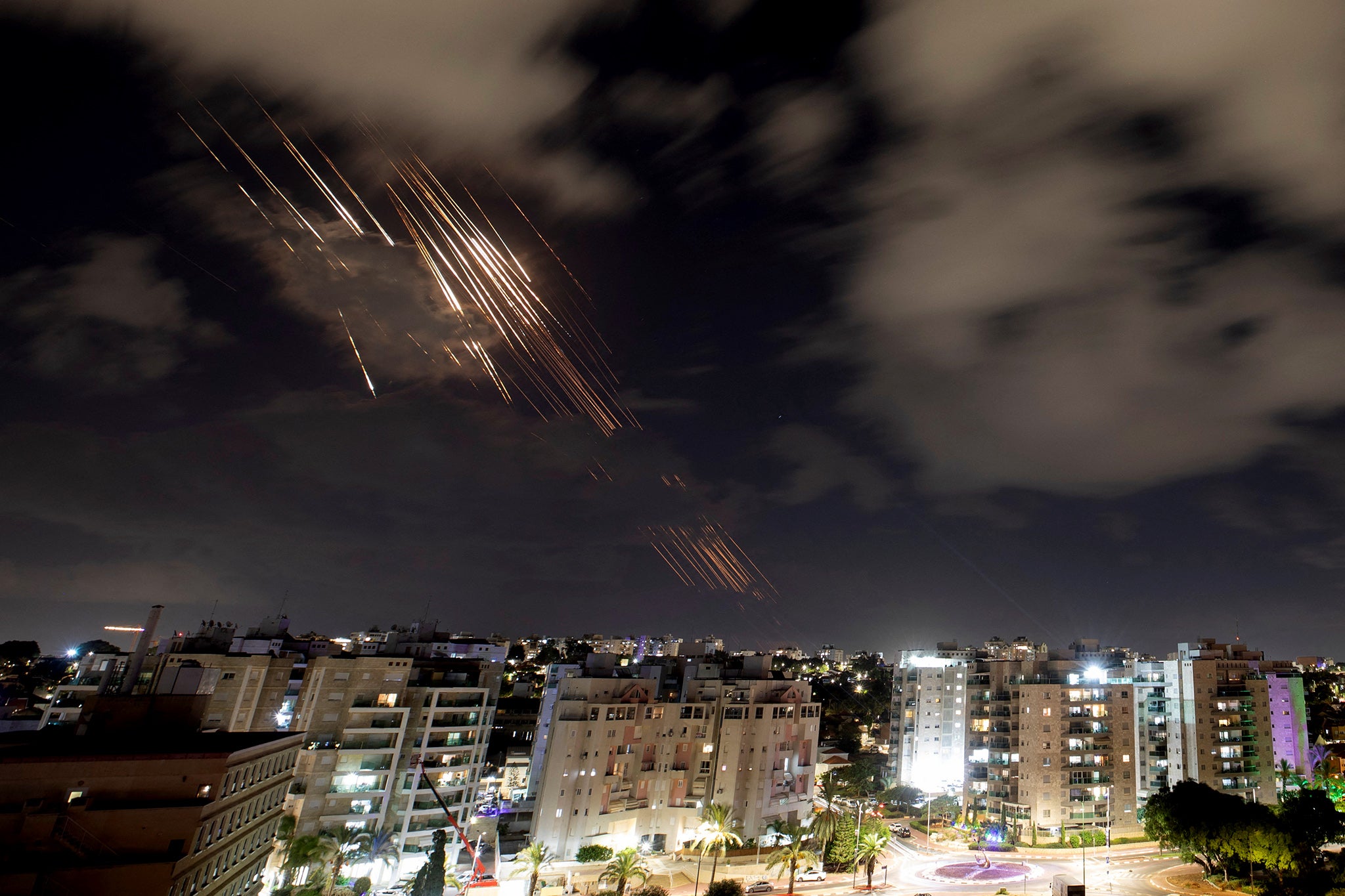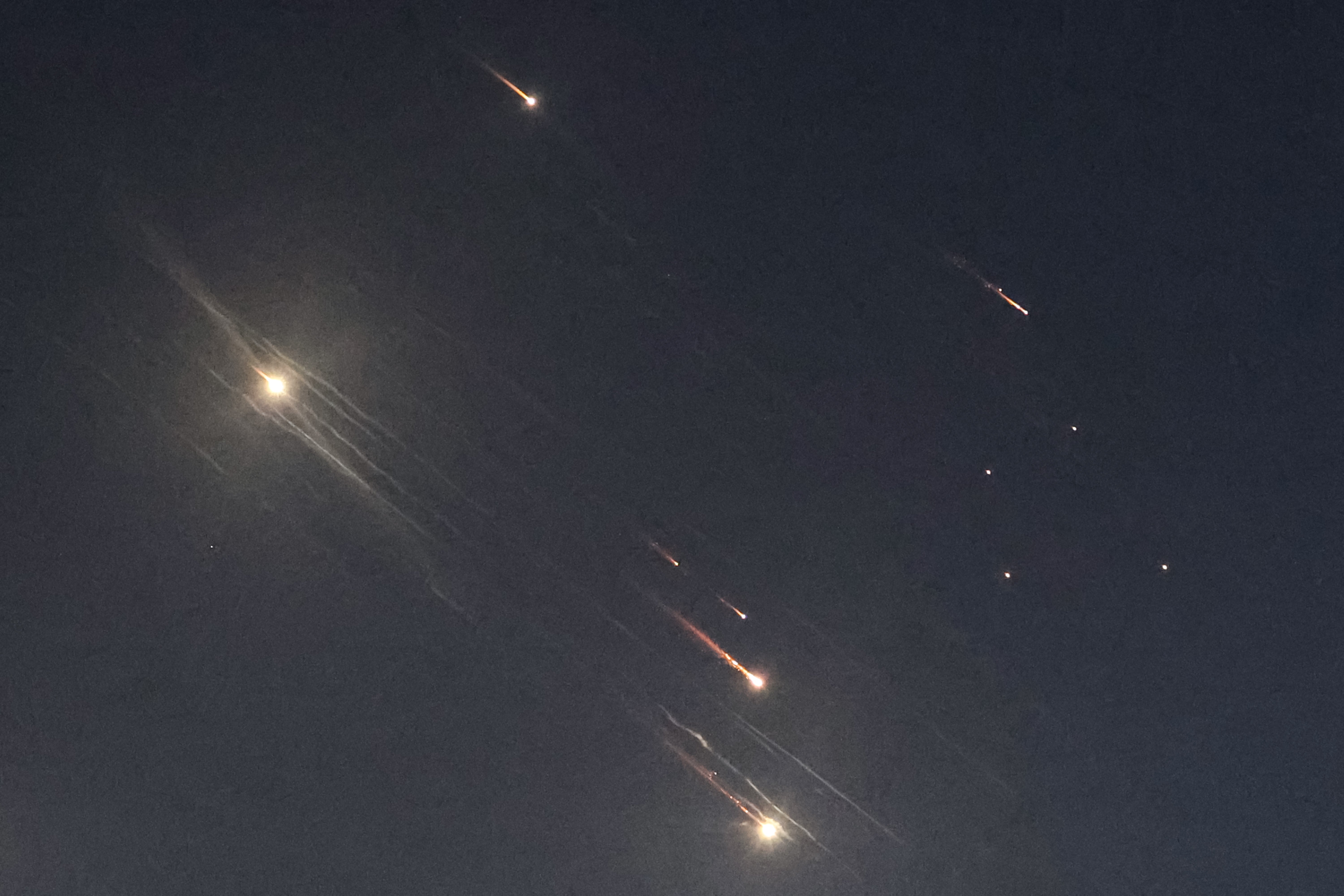As Iran retaliates for Israel’s Lebanon campaign against Hezbollah – what comes next for the Middle East?
The region, and Western nations, will be hoping to see tensions simmer down, writes Chris Stevenson – but given the leaders involved, that may be a forlorn hope


The missiles lit up the sky across Israel, explosions ringing out as they were intercepted or they hit the ground. Civilians across the country were asked to stay in shelters while air raid sirens blared.
It is not the first time Iran has fired on Israel this year, Tehran launched more than 330 drones and missiles against its most bitter adversary in April – retaliating for a strike on the Iranian consulate in Syria. That attack, the first such strike ever, took a number of hours to complete compared to the one on Tuesday night, with the drones taking some time to reach Israel. Alongside help from allies such as the US and the UK, Israel said it had intercepted 99 per cent of the projectiles that day, in what was a highly-telegraphed move by Iran.
In the wake of that barrage, Tehran said it considered the matter "concluded" although it would respond if Israel struck back.
While we are waiting to see the extent of the damage from the latest attack, Israel said that there were few injuries and was bullish about its capability to fend off the attack, again with the help of the US.
The difference this time – other than the speed of the strikes, with high-speed ballistic missiles being a key component of the Iranian launch – is the atmosphere in which it took place. In April, the backdrop was Israel's war in Gaza against the Iran-backed Hamas, plus the near-daily cross-border barrage between another Tehran-supported group, Hezbollah in Lebanon, and Israel. Both of those conflicts continue, but the tension has been ratcheted up by Israel starting a ground invasion into Lebanon to target Hezbollah, off the back of two weeks of airstrikes and attacks involving exploding pagers and walkie-talkies.

Hezbollah has been left reeling, with a number of senior commanders killed – as well as the long-standing leader of Hezbollah, Hassan Nasrallah. In addition to Hamas commanders and members of Iran's Islamic Revolutionary Guard Corps (IRGC).
Iran referenced Hezbollah leader Hassan Nasrallah and Revolutionary Guard General Abbas Nilforushan, both killed in an Israeli airstrike last week in Beirut in its rationale for the latest attack. The statement also mentioned Ismail Haniyeh, a top leader in Hamas who was assassinated in Tehran in a suspected Israeli attack in July.
The Revolutionary Guards said Iran had launched tens of missiles at Israel, Israeli media suggested closer to 200. Israel has threatened to retaliate, saying there will be serious consequences, while the Guards added that if Israel retaliated Tehran's response would be "more crushing and ruinous".
So where does that leave the region? Israel responded to the April attack with airstrikes in Iran, but wider escalation was averted. The nature of the latest strikes also leaves the door open for Israel to not respond too heavily and keep the current, if highly-charged, balance. But given the push into Lebanon, Israeli Prime Minister Benjamin Netanyahu appears to want to push the boundaries as far they will go.
There are diplomatic levers to pull, such as fresh sanctions on Iran, something that would be unlikely to bring another retaliatory move from Tehran, but would act to put extra pressure on Iran. That would likely be Washington's preferred route, but the US has found out recently that seems to be influencing Netanyahu's actions less successfully.
On the other side is Supreme Leader Ayatollah Ali Khamenei, who is said by Iranian officials to have ordered the latest strikes. Given the hits Hezbollah has taken, he will not want to look weak in failing to protect an ally. But Tehran will be wary of a wider conflict, not least given the staunch support the US has given Israel, and particularly given the current state of Hezbollah, its best-armed proxy.
It may purely come down to the egos of the two leaders involved, which will be a scary prospect for nations across the Middle East and the West. There will be intense diplomatic efforts to try and ensure calmer heads prevail, but only time will tell.



Join our commenting forum
Join thought-provoking conversations, follow other Independent readers and see their replies
Comments